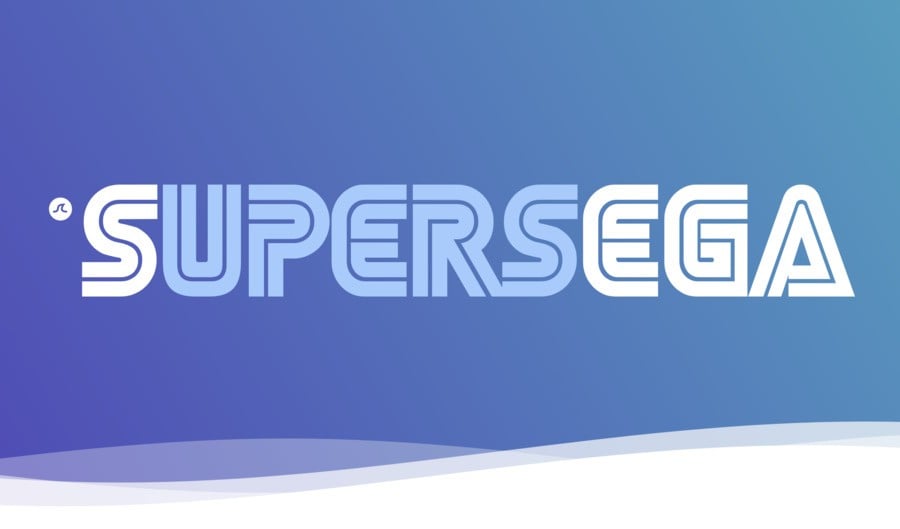
Recently, the news that an all-in-one Sega FPGA console was in development caused quite a stir online.
The SuperSega promises to run Master System, Mega Drive, Saturn and Dreamcast games, all via a Virtex Ultrascale+ FPGA chip. Almost immediately, there was a fair amount of scepticism online directed towards the project, with many people claiming the system will be little more than vaporware.
Keen to learn what the group behind SuperSega thought of this reaction, we tracked them down for an interview. Amazingly, we discovered that the project isn't really a new one; the name is taken from a Spanish site called SuperSega, which was established in 2002 and allowed users to upload their own ROMs via FTP. Users could then rate and comment on various titles. At its height, SuperSega had 100,000 registered users.
According to Cristina Burgués, who is handling PR for the project, SuperSega is a result of wanting to expand on that same concept of a unified library of games via an all-in-one Sega 'super console' capable of playing all of the company's classic software. Burgués playfully adds that 'SuperSega' sits as a neat contrast to the 'Super Nintendo'.

We asked Burgués about the level of pessimism that has surrounded the project since it was announced. She replies that it's natural to cast doubt over bold promises. "Nothing is certain in this life," she says, before adding that her brother, SuperSega lead engineer Alejandro Martin, has been designing hardware "since he was 16." She also says that the team has contacts in Spain "who currently are in the process of designing the prototype board that we expect to show after the holidays." We don't have long to see if this project is little more than specs on a page, at least.
The system's design has also come under fire, but, as Burgués explains, there's a good reason for it looking that way. "The design; some people do not like it, others do – but it looks like that because we started with Master System," she says. "Our family had the Master System Plus, the one with lightgun, so we were inspired to create the SuperSega as a tribute."
We're pleased to report that two omissions from the original spec list – Sega 32X and Sega CD – will be playable on SuperSega. However, the former will require the use of the 32X itself.
The claim that SuperSega will be capable of replicating Dreamcast-level performance with FPGA also raised a few eyebrows. We asked if the team actually had Dreamcast games running on the Virtex Ultrascale+; Burgués replied that "a few games" are up and running and that the Ultrascale+ has "100K-200K of logic cells that can emulate a Dreamcast behaviour."
As for how the device will deal with Dreamcast's proprietary GD-ROM format, Burgués explains that the team is still researching this. "There were a few optical drives available that can read GD discs, but we are not sure if we will be able to use them," she replies. "If not, users will be able to load their own ISOs into memory from either the DVD drive or an SD card."
Another question relates to the controller options on SuperSega; while there are plenty of DB9 ports for Master System and Mega Drive / Genesis pads, there are no ports for either Saturn or Dreamcast. Burgués says that the four USB-A ports will be used for these consoles; expect to see USB-ready versions or an adaptor that will permit the use of original pads.
Given that the name 'Sega' is included in its name, we felt compelled to quiz Burgués on whether or not 'SuperSega' branding will be subject to change in the event of a challenge from the Japanese giant. She gave a somewhat bullish response. "No one has said anything to us about the 'SuperSega' name, neither now nor 20 years ago when we launched the site."
We expressed a little surprise at this reply, given that the SuperSega website was effectively allowing people to upload copyrighted ROMs without Sega's permission, but Burgués points out that an approach has been made to Sega with the view of making this system a little more official.

"We recently contacted a few people at Sega regarding licenses," she says. "It would be great if the console could ship with some ROMs inside – licensed by Sega, of course. I think users will welcome the chance to pay a little bit more if it means the inclusion of some great Sega classics. We are waiting for a reply from Sega, and then we will see." Given that Sega has previously worked with companies like Blaze to allow ROMs to ship with devices like the ill-fated Game Gadget, this isn't as outlandish as it sounds, but until the company responds, it's perhaps prudent to assume it won't be giving SuperSega it's official blessing.
What about the platform's pricing, though? Given that it comes with a powerful FPGA chip, the SuperSega surely isn't going to come cheap, right? "Our target is about $400 to $450, if we can collect enough funds to produce a few thousand units," says Burgués. "It might go up if we include licensed games, a GD-ROM-compatible optical drive, an internal SSD drive, and so on. But please take this target with a grain of salt; it can go up, but we think that it will be in the $400 ballpark."
A release date is somewhat harder to pin down as prototype boards are still in development. "We expect these boards to be completed after the holidays – so between September and October. After that, we will focus on completing the FPGA cores and then the GUI. We hope, by the end of this year, to raise a funding campaign or get funds in another way. At this moment, we are still very much a work in progress."
